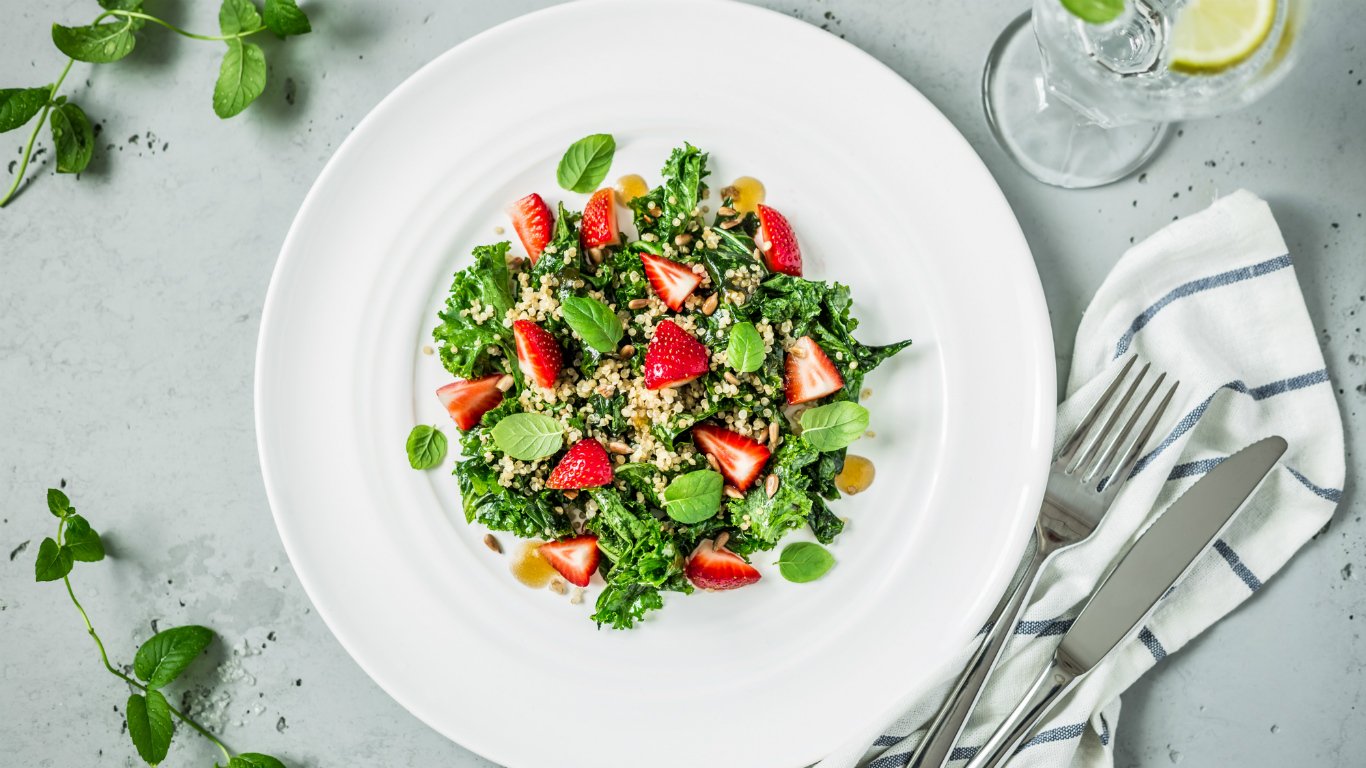

You may want to reconsider eating those fiber-rich strawberries. And maybe think twice before adding two of the always so popular vegetables to make a smoothie “green.” Yes, we are talking about spinach and kale.
These superfoods are among fruits and vegetables that contain the most pesticides, according to Environmental Working Group’s 2019 “Dirty Dozen” report. The last time kale made the list was a decade ago.
Almost all samples of strawberries the nonprofit organization tested had detectable amounts of at least one pesticide, and a third had detectable amounts of 10 or more pesticides. Overall, more than 80 different kinds of pesticides were found in strawberries.
Spinach did not fare much better. This popular green leaf vegetable ranks second, a huge jump since its eighth place in the 2018 report. Three-fourths of the tested samples contained a certain pesticide — a neurotoxic bug killer — that has been banned in Europe. Many samples contained pesticides that have been banned for use on spinach but are allowed on other crops.
Pesticides include several chemicals that are used to kill insects, weeds, mold, and rodents that may destroy the produce. While they may protect the food, they can also be toxic to people, according to the World Health Organization.
The pesticide that has been detected the most in all examined foods was Dacthal, or DCPA. The Environmental Protection Agency classified DPCA in 1995 as a possible human carcinogen. Europe banned it from use in 2009.
Here is the “Dirty Dozen” full list:
1. Strawberries
2. Spinach
3. Kale
4. Nectarines
5. Apples
6. Grapes
7. Peaches
8. Cherries
9. Pears
10. Tomatoes
11. Celery
12. Potatoes
EWG makes the case for choosing organically grown fruits and vegetables, citing research published in December in JAMA Internal Medicine, a journal from the American Medical Association. According to the study, people consuming the most organically grown food, as opposed to conventionally grown, had 25% fewer cancers. The study, however, does not fully agree with previous studies on the matter and was not able to separate factors such as wealth and other lifestyle choices that may affect the result.
While eating organic is probably safer, a diet full of fruit and vegetables, regardless of their source, is always the healthiest choice. If you can’t find or can’t afford organic options, you may want to look for fruits and vegetables with lower amounts of pesticide residues. The EWG also published a list with the produce found to contain the least amount of pesticides.
Here is the “Clean Fifteen” full list:
1. Avocados
2. Sweet corn
3. Pineapples
4. Frozen sweet peas
5. Onions
6. Papayas
7. Eggplants
8. Asparagus
9. Kiwis
10. Cabbages
11. Cauliflower
12. Cantaloupes
13. Broccoli
14. Mushrooms
15. Honeydew melons
Sponsored: Attention Savvy Investors: Speak to 3 Financial Experts – FREE
Ever wanted an extra set of eyes on an investment you’re considering? Now you can speak with up to 3 financial experts in your area for FREE. By simply
clicking here you can begin to match with financial professionals who can help guide you through the financial decisions you’re making. And the best part? The first conversation with them is free.
Click here to match with up to 3 financial pros who would be excited to help you make financial decisions.
Thank you for reading! Have some feedback for us?
Contact the 24/7 Wall St. editorial team.

